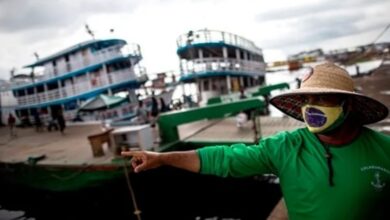How does Europe’s ban on AstraZeneca affect Latin countries?
AstraZeneca's COVID-19 vaccines are in the eye of the hurricane after European countries decided to suspend their use.

Several countries joined the temporary suspension of this vaccine, among them Spain, Denmark, Norway, Iceland, Italy, Germany and France. Photo: Freepik
LatinAmerican Post | Brandon Martínez Salazar
Listen to this article
Leer en español: ¿Cómo afecta a los países latinos el veto de Europa a AstraZeneca?
In recent weeks, AstraZeneca vaccines have been affected by the suspension of their administration in several European countries, as their use has been linked to fatal episodes due to thrombi in inoculated patients in the media. The first country to manifest itself with this event was Austria, where two cases of thrombotic events occurred, one of them died.
Sanidad investiga la muerte de una mujer tras recibir la primera dosis de la vacuna de AstraZeneca. La fallecida es una profesora de 43 años que no presentaba patologías previas y acudió a urgencias horas después de la administración de la vacuna https://t.co/hAQBIvC6RH
— EL PAÍS (@el_pais) March 17, 2021
Due to this situation, more countries joined the temporary suspension of this vaccine, including Spain, Denmark, Norway, Iceland, Italy, Germany, and France. This has generated a complex scenario at the political level because at the moment the world is waiting for a new analysis to validate the safety of the antidote against Covid-19.
Meanwhile, the pharmaceutical company assures that there is no evidence linking the reported cases with the administration of its vaccine. Likewise, the World Health Organization (WHO) recommends not stopping its use.
The situation in Latin America
In Latin America, the outlook is disconcerting because several states in the region are still waiting to receive millions of doses of AstraZeneca to immunize their population through the COVAX program, but this event has left great uncertainty due to the slowdown that could generate in vaccination campaigns. Brazil. Mexico, Colombia, and Argentina are the countries that will receive the most of these vaccines not only because of COVAX but also because of their diplomatic negotiations to access the drug.
La coalición #COVAX, de @gavi y @opsoms, se propone asegurar el acceso equitativo a las vacunas contra la COVID-19. ¿Sabes qué países latinoamericanos recibirán la mayor dotación de vacunas a través de este programa? https://t.co/fBHtM2C9Hz pic.twitter.com/352i6MdMaX
— Statista en español (@Statista_ES) February 4, 2021
The president of Mexico, AMLO, has ruled that "risks are not considered in its application" and therefore the country will continue with its administration that has already begun with a total of 870,000 doses.
The Brazilian Ministry of Health also ruled out the suspension of the vaccine and this is important because it is one of the southern countries that has received the most doses in the first quarter of 2021, exceeding four million of the liquid.
Also read: The reality of Latin America one year after the declaration of a pandemic
Venezuela was emphatic that its use will not be approved due to the side effects that have occurred in Europe. "Venezuela will not give permission for the AstraZeneca vaccine to be used in the immunization process of our population due to the situations and complications that have occurred to those who have been vaccinated," said Vice President Delcy Rodríguez.
For its part, Colombia, which is awaiting the first batch of 244,000 doses from this laboratory in the coming weeks through COVAX, maintains that INVIMA is evaluating the information in this regard and will wait 15 days to finally determine whether or not it will be used.




